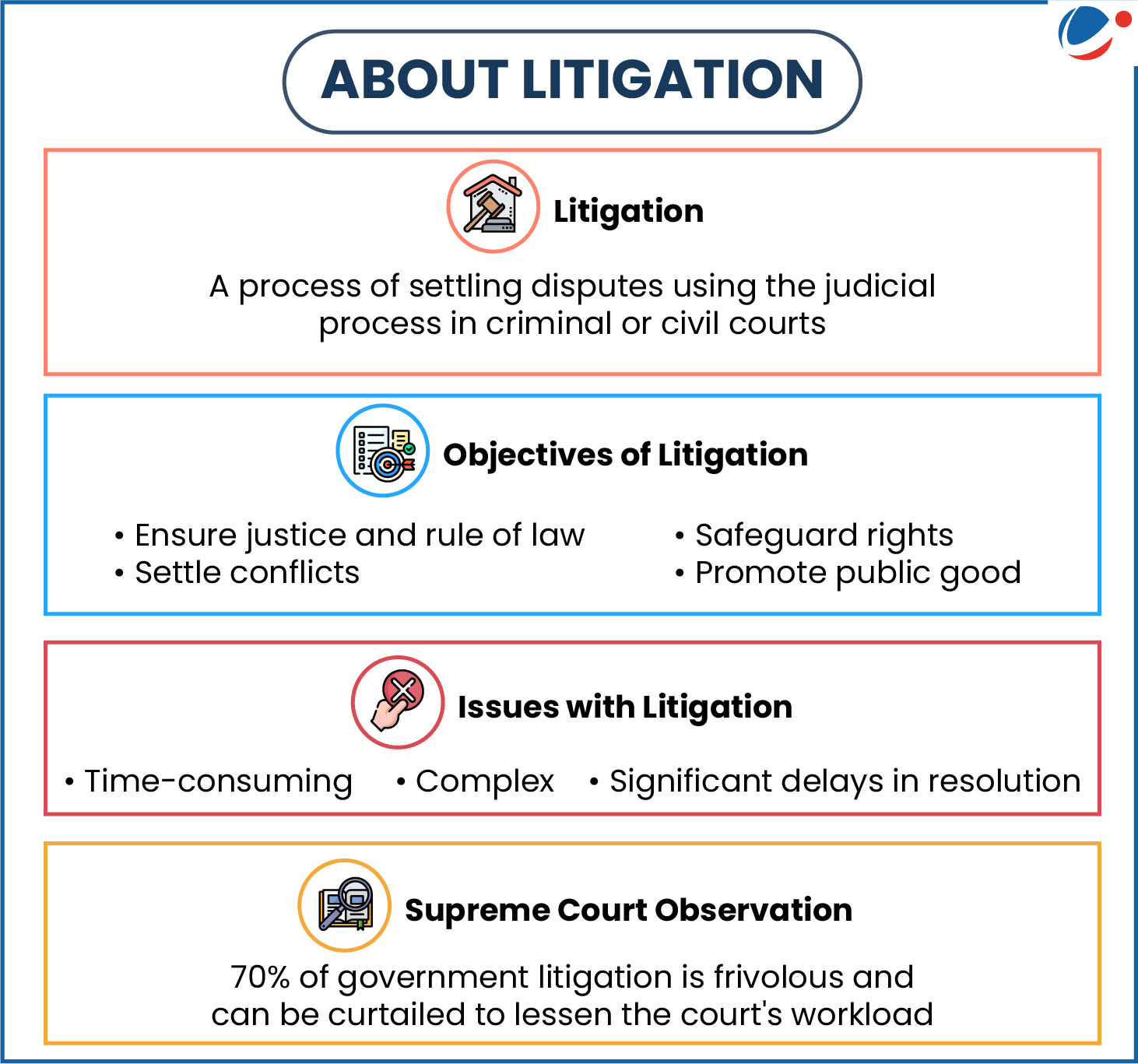The 'Directive for the Efficient and Effective Management of Litigation by Government of India' is an integrated approach towards good governance, public welfare and timely dispensation of justice.
- Aim: Serve as a "Standard Operating Procedure" for litigation management.
- Applicability: All Central Government Ministries/Departments, their attached and subordinate offices, autonomous bodies and for arbitration matters to CPSEs as well.
- State Governments may also consider adopting the Directive.

Challenges in Government Litigation Management
- Concentration of Litigation: E.g., Central government is a party in nearly 700,000 cases pending across courts.
- Capacity Constraints: Ministries capacity to manage litigation is limited due to resource constraints. E.g., Most Ministries don’t have Legal Cell.
- Narrow interpretation of statutory provision: It often serves as the primary catalyst for escalating grievances into litigation.
- Non-fulfilment of procedural requirement: E.g., Improper or incomplete submission of forms, affidavits, etc.
Directives to Manage Litigation
- Strengthening Capacity: Dedicated Legal Cell, Appointing a Nodal Officer with legal expertise.
- Also, Litigation specific courses be made available on i-GOT Karmayogi platform.
- Grievance Redressal Mechanism: Ministries should review grievance redressal quarterly and analyze trends through compiled data.
- E.g., Department of Posts holds “Staff Adalats” biannually at Circle level.
- Establishment of Government Arbitration Portal: E.g., On the lines of National judicial Data Grid to collate data, etc.




